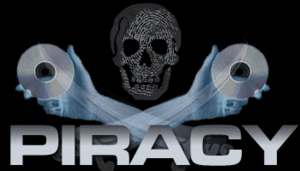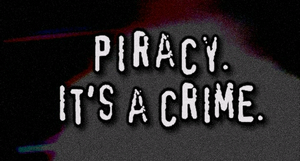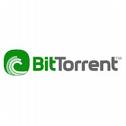Courses/Computer Science/CPSC 203/CPSC 203 2007Fall L04/CPSC 203 2007Fall L04 TermProjects/P2P Networking: Intellectual Property Theft
Contents
Group
Group Name: The Big 5
Group Members: Jeff Uppal, Mitch Grassi, Jyoti Kalsi, Akosua Vilaysane, Krista Robb
Initial Project Statement
How do peer to peer networking technologies (especially Bittorrent) promote the theft of intellectual property? Specifically that of the film industry. As well, we will be looking at the response of the MPAA (Motion Picture Associate of America) to various issues of intellectual property theft dealing with "The Big 6". The Big 6 refers to Paramount, Sony, Disney, Fox, Universal and Warner Brothers.
Intellectual Property Law
Intellectual property laws grants exclusive rights (like patents or copyrights) to individuals or corporations over ideas that can results in products (physical and otherwise). With the advent and rise in popularity of peer to peer sharing networks, film piracy has been a problem that has been dodging the film industry, particularly in North America.
- Canada
In Canada, the Copyright Act defends both copyrights (lasts for the life of the author and 50 years after their death) and moral rights (an enduring right that always remains with the original author). As with the United States, it prevents unauthorized reproduction of the work.
It provides authors protection for "original literary, dramatic, musical and artistic" work, expression of ideas (however the work must be in physical form, unique and relatively permanent) and ownership of the work.
Specifically the Act allows individuals with the copyright the sole right to:
1. Produce, reproduce, perform or publish the work
2. Change the work into a “novel or other non-dramatic work”
3. Change the work into a “dramatic work, by way of performance in public or otherwise”
4. Make recordings and films of the work
6. Present the work publicly using various forms of telecommunication
8. Rent out the work (in the case of computer programs and musical works)
- United States of America
In the United States, these laws are in place to protect the rights of individuals or corporations. It is meant to prevent other individuals from profiting from the ideas of others.
In the United States a copyright is law that provides protection for “authors of original works of authorship, including literary, dramatic, musical, artistic, and certain other intellectual works”. From the US government copyright website, the holder of a copyright has the exclusive right to:
1. Reproduce the copyrighted work
2. Produce other works derived from the copyrighted work
3. Distribute the copyrighted work to others through sale, rental, lease, or lending
4. Perform the copyrighted work in public (this pertains to “literary, musical, dramatic, choreographic works, pantomimes, motion pictures and other audiovisual works”)
5. Present the copyrighted work in public (pertaining to “literary, musical, dramatic, and choreographic works, pantomimes, and pictorial, graphic, or sculptural works, including the individual images of a motion picture or other audiovisual work”)
- Copyright Infringement
Piracy or copyright infringement occurs when the work is produced and reproduced without authorization from the owner of the work. Traditionally, film piracy was usually carried out by filming a work in a theatre and producing discs from the recording, or by directly copying a work and reproducing discs from the copy. In recent years, peer to peer networks have allowed individuals to share and download films for free without compensation to the film companies. See MPAA policy below for more.
Big 6 Policy (MPAA) to Future
Formed in 1922, the Motion Picture Association of America "the voice and advocate of the American morion picture, home video and television industries". It's international counterpart, the Motion Picture Association, was formed in 1942 to reflect the growing international market for American films. Today the MPA holds offices in Washington, D.C. (headquarters), Los Angeles, Toronto, Brussels, São Paulo, and Singapore.
The MPAA uses many different technologies to circumvent the ease and cost of pirating. These technologies include copy protection in DVDs (content scrambling), PPV, DSL and cable set-top boxes, satellite signals which contain digital encryption encoding and videocassettes that contain Macrovision.
The MPAA encourages individuals to support the movie industry by purchasing copyrighted works, downloading from a legitimate site, going to the movie theater, or renting copyrighted works from a legitimate store. They also encourage parents to teach their children to respect copyrights as they allow movie companies to provide quality entertainment at a reasonable price.
The MPAA believes in the prosecution of individuals who commit piracy "because creative works such as motion pictures and television are as valuable as any other type of property".
InternationalThe MPA has individuals that work with other law enforcement agencies around the world to make certain that copyrights owned by the film industry are protected in accordance with the laws in the various countries.
They oversee protection of their members copyrights (including the Big 6 in North America) in 70 territories and countries by working with governments to develop legal systems allowing for the successful prosecution of infingers. Infringers can also be prosecuted under other related crimes such as theft of goods, smuggling, violation of trademarks and nonpayment of custom duties.
Piracy is especially rampant in Southeast Asia due to the very high cost of legitimate DVDs and most people cannot afford to buy the real version. This is recognized by the MPA and they advocate lowering the price of media in these areas to be more in line with the income of the population.
North America
In North America, legal action is taken by the holders of the copyrights (or the MPAA for it's member companies) against the infringers. Copyright infringement is a very serious matter in which criminal charges can be made as these crimes are considered felonies. These charges deal with individuals who make or import copies in order to sell or rent them out for profit, in recent years law have also been written to make it illegal to circumvent the technology meant to protect copyrighted work. In the U.S. many states have laws that make it illegal to record films inside movie theaters as these can later be uploaded onto peer to peer networks.
Bittorrent Trackers and Clients
Trackers
- The 5 Most Popular Trackers List:
1. ThePirateBay.org Peers: 5 164 500 Torrents: 636 734
- The PirateBay is "The worlds largest BitTorrent tracker". Thepiratebay.org (TPB for short) not only acts as a search engine for torrent files across many trackers, but they also supply the largest tracker of content. TPB has been under attack for illegal distribution of intellectual property for years, and on May 31, 2006 the Swedish police conducted an illegal raid on their servers. The raid was carried out due to political pressure originating from the United States' government likely influenced by the consistent lobbying by the MPAA. Proof of this can be seen by an official MPAA statement released during the raid:
- “The bottom line is that the operators of the Pirate Bay and others like them are criminals who profit handsomely by facilitating the distribution of millions of copyrighted creative works and files protected under the law,” said John G. Malcolm, Executive Vice President and Director of Worldwide Anti-Piracy Operations for the MPAA. “We applaud Swedish law enforcement for their effort to stop egregious copyright infringement on The Pirate Bay.”
- The raid however was unsuccessful, and TPB continues to run its servers in Sweden to this day.
2. Demonoid.com Peers: 3 138 042 (Estimated) Torrents: *no info*
- Demonoid.com was recently taken down because "The Canadian Recording Industry Association (CRIA) threatened the company renting the servers to them, and because of this it was not possible to keep the site online." Demonoid is what is referred to as a "Private Tracker" which requires users to create a login name and password in order to gain access to their torrent databases. Currently the Demonoid tracker is still online, and the only thing experiencing downtime is their main site. The Demonoid website has all their torrents indexed and allows users to freely search throughout their database. The difference with being a private tracker however, is that they track all users' share ratios (the amount the user uploads to the community divided by the amount the user downloads from the community). If a user were to fall below a certain set share ratio their access to the Demonoid tracker would be revoked until they uploaded above a certain point. This method of torrent tracking promotes a heavy flow of traffic with a low amount "leechers" (Users who upload very little).
3. Denis.Stalker.H3Q.com Peers: 1 353 421 Torrents: 195 586
- Denis Stalker, also coined the name Opentracker, is a public tracker that anyone can use to share torrent hashes on. A hash is a "digital fingerprint" for data, which basically allows torrent trackers to check the structure of the file a peer is receiving. Unlike other trackers however, Denis Stalker does not host any of their own torrents, nor do they index their torrent database. The Opentracker just helps out the torrent community by providing another large server to link peer to peer connections on.
4. SUMOTracker.org Peers: 1 256 358 Torrents: 130 693
- SUMOtracker is also another public tracker that users can connect to while downloading files. SUMOtracker is indexed on the website SUMOtorrent.com and has a wide variety of content to download. A large portion of their content comes in the form of movies which, on their indexer, has an entire page dedicated to the top 100 downloaded movies via SUMOtracker. The accessibility makes it extremely easy for a citizen in another country to download movies illegally via bit torrent.
5. TorrentBox.com Peers: 1 144 100 Torrents: 40 818
- TorrentBox is yet another public tracker which promotes peer to peer file sharing via their indexer and tracker. The interesting thing to note about TorrentBox is that they now BLOCK ALL US TRAFFIC. Right on the front of the Torrentbox.com index site is a notice stating that all US traffic is currently blocked until further notice. This ban is due to the MPAA filing a lawsuit against the owners of Torrentbox.com and many other major torrent searching sites.
Clients
µTorrent is one of the most popular bit torrent clients in use today. It's a a low system requirement bit torrent client that can run on Windows (Win95+), Mac (CrossOver Office alpha 2/3) and Linux (Wine 0.9.16). The reason many users choose µTorrent to download is because it's so simple to use. There's very little tweaking required to start downloading files, although tweaking will increase performance in some cases, it's not required.
Also, the emergence of ISP throttling has caused many users to switch over to either µTorrent or Azureus. ISP throttling is when your Internet Service Provider caps download and upload speeds on certain outgoing and incoming ports. Many ISP throttle Peer 2 Peer ports because of the huge amount of bandwidth they cost the provider. The heavy bandwidth usage is mainly due to the fact that not only are you downloading files on bittorrent, but during the download process you're also uploading your pieces of the file to the swarm of other users, and even when your download is completed the client will usually continue to upload.
µTorrent and Azureus have been on a joint project to code Protocol Encryption, which allows bittorrent traffic to pass through the ISP unthrottled. One of the major concerns to the movie industry with the use of µTorrent and other clients is that almost all of them now utilize the DHT distribution method of files. DHT (Distributed Hash Table) allows clients in the swarm to continue to find other peers to download/upload files to without the use of a tracker.
This means that the MPAA can't stop the illegal distribution of movies over bittorrent clients using DHT, and even shutting down the tracker (the server that normally links peers over the network) will have no effect on the spread of stolen content. This is one of the reason the MPAA has began lawsuits against single client users.
Popular Cross-Platform Client List:
- Azureus
- µTorrent
- Bit Torrent
- Yet ABC
- Hydranode
- Bit Tornado
- Bit Comet
- Torrent Volve
- Torrent Flux
- Transmission
- mldonkey
- Rufus
- BT++
Market Figures and the Effects of Piracy
MPAA Losses Piracy in the movie industry is increasingly detremental to the industries future outputs. According to the MPAA, a study in 2004 and 2005 conducted the market costs of piracy in the movie industry alone. Pirated films account for 62% in hard-copy form (such as DVD), the internet theft at a 38% accounting for the $6.1 Billion dollar losses to the industry. They are not the only ones taking the hit, the distributors, video stores, theators, pay-per-view operators lost a whopping 18.2 billion in 2005. The average cost for marketing and making a MPAA member company film reached approximatly $100.3 million in 2006. Taking into account the $65.8 million in negative costs and $34.5 million in marketing costs. It is possible for producers to make a movie and just "break even" if not make any money after its pitch to the public with piracy at its peak.
Its Effect on Economies The Motion Picture industry is a contributor to ecomonic development. Its industry employs hundreds of thousands of workers, whether it be the actors themselves, the caterers to the movie set, the cashiers at the video stores, even the people who serve you your popcorn. Even the law enforcement behind these crimes costs economies bundles of money. The figures are different economy to economy (as can be seen in the graph from the MPAA website)
Pirate Pay-back Pirating is a felony, and pirates are treated as criminals. Even posessing pirated content has concequences. Software companies can even be fined for the encouragement of piracy via peer-to-peer networks. It comes down to violating copyright laws, leading individuals to pay big bucks. First time violators can go to jail for 3-5 years, and pay up to $250 000 fines. Individuals caught downloading can be fined $30000-$150000 dollars in fines.
For the people who dont pirate The more piracy the higher prices will rise to account for lost property. Even for the consumers who appreciate the magic of the theater, it doesnt take an economist to realize when it becomes unaffordable. The cost of DVD's will rise, as will your music, if you insist on downloading or purchasing pirated items with enevitably bad quality.
Main References
http://torrentfreak.com/5-most-popular-bittorrent-trackers-070924/
http://www.mpaa.org/piracy.asp
http://www.bittorrent.org/protocol.html
http://en.wikipedia.org/wiki/Intellectual_property
http://en.wikipedia.org/wiki/Canadian_copyright_law
http://laws.justice.gc.ca/en/showdoc/cs/C-42/bo-ga:l_I//en#anchorbo-ga:l_I
http://opentracker.blog.h3q.com/
Other Sites of Interest
http://www.wired.com/politics/onlinerights/news/2007/10/p2p_hacker
http://news.bbc.co.uk/2/hi/technology/4743052.stm
http://hbswk.hbs.edu/item.jhtml?id=4206&t=innovation
http://www.amule.org/wiki/index.php/FAQ_ed2k
http://kent.dl.sourceforge.net/pdonkey/eDonkey-protocol-0.6.2.html
http://basis.gnufu.net/gnufu/index.php/Why_Gnutella_scales_quite_well
http://www.sims.berkeley.edu/~pam/papers/CACM%20SCT%20decides%20MGM.pdf
http://www.slyck.com/story1019.html
http://www.napsterresearch.com/
http://www.wired.com/news/mp3/0,1285,50625,00.html
http://www.pcreview.co.uk/articles/Consumer-Advice/The_Legality_of_File_Sharing_-_MGM_vs_Grokster/
http://en.wikipedia.org/wiki/EDonkey_network
http://ethics.csc.ncsu.edu/intellectual/peer/study.php
http://www2.austlii.edu.au/~graham/CyberLRes/2001/5/
http://www.technologyreview.com/Infotech/13164/?a=f
http://www.cnn.com/SPECIALS/2001/napster/peer.html
http://iptps03.cs.berkeley.edu/final-papers/copyright.pdf
http://usinfo.state.gov/products/pubs/intelprp/challenge.htm
http://torrentfreak.com/mediadefender-decoy-effectiveness-on-bittorrent-sites-070922/
http://en.wikipedia.org/wiki/Napster
http://www.mediadefender-defenders.com/
http://news.yahoo.com/s/nm/20070928/media_nm/piracy_dc;_ylt=AsS1AYQ5HC0EkTAtwuufAyJxFb8C
http://observer.guardian.co.uk/business/story/0,6903,891687,00.html
http://torrentfreak.com/mpaa-responds-to-harry-potter-leak/
http://www.washingtonpost.com/wp-dyn/content/article/2006/06/14/AR2006061402071_pf.html
http://freeculture.org/pipermail/discuss/2006-April/000679.html
http://www.mpaa.org/2006_05_03leksumm.pdf
http://en.wikipedia.org/wiki/Grokster
http://www.senate.gov/~foreign/hearings/2004/hrg040609a.html
http://www.theglobeandmail.com/servlet/story/RTGAM.20070214.wblacklist14/BNStory/National/home
http://www.obs.coe.int/db/gavis/piracy.html
http://en.wikipedia.org/wiki/Gnutella
http://portal.acm.org/citation.cfm?id=1065143.1065148
http://www.timewarner.com/corp/print/0,20858,1192450,00.html
http://news-info.wustl.edu/tips/page/normal/5691.html
http://www.wipo.int/portal/index.html.en
http://commdocs.house.gov/committees/judiciary/hju21217.000/hju21217_1.HTM
http://www.state.gov/e/eeb/rls/rm/30717.htm





